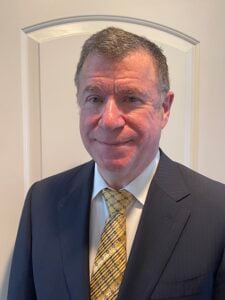I’ve written about Platelet Rich Plasma several times in past blogs. But if you’ve only recently heard about it or, unfortunately, are exploring treatments for a recent knee injury or re-injury, you should continue to read this. Before you undergo any therapy, invest the time to learn about it. It’s your body and the results affect your future and ability to live a full and pain-free life.
Platelet Rich Plasma, also known as PRP, is a simple, non-invasive procedure that provides superior pain relief by promoting the natural healing potential of the body with platelets from your own blood. We’re seeing our PRP patients experiencing safe and effective relief about as quickly and easily as possible. Whatever the cause of knee pain – tennis, rollerblading, running in the sand – my staff at NJ Pain Care Specialists and I have successfully treated it many times in the past, but nothing has provided results as exciting as PRP.
In addition to knee pain, PRP is being used to treat tendon, ligament and joint injuries that have failed more traditional therapies, including rotator cuff injuries, tennis elbow, Achilles’ tendon, plantar fasciitis, meniscus tears, and bursitis of the hip. Over the years, many world-class athletes, including Kobe Bryant, David Ortiz, Tiger Woods and Rafael Nadal, have turned to PRP for quick pain relief without the risks of surgery and extended recovery. If PRP can get them back to high-level competition quickly and prolong their careers, imagine how beneficial it can be for your knee or other injury.
The ABCs of PRP
If you’re not familiar with Platelet Rich Plasma Therapy, here’s a quick overview: Blood is made up of red and white blood cells, plasma, and platelets. Following an injury, platelets in our bodies are activated and release healing proteins called growth factors, which help to speed up wound and tissue healing. PRP is a very good source of these growth factors because PRP can be taken from your blood quickly, easily and safely.
This is how the one-hour inpatient procedure is performed at New Jersey Pain Care Specialists:
- A small sample of your blood is taken and placed into a Platelet Concentrate System, which separates the blood into its primary components – platelets and white blood cells, plasma, and red blood cells.
- After a portion of the plasma is removed, your concentrated platelets are mixed with the remaining plasma to form a platelet-rich solution that is then injected into and around the injured tissues using ultrasound guidance to confirm that the needle is positioned properly.
- The concentrated platelets trigger a natural immune response as specialized white blood cells (macrophages) rush in to remove damaged cells and prepare the tissue for healing.
- Stem cells and other cells multiply, repair and rebuild the damaged tissue – an accelerated healing response that reduces pain, promotes increased strength and improves joint function.
- You may require just one treatment, or you may need additional sessions before returning to a normal active lifestyle.
Choose Simple and Safe Over Surgical
If the therapy you’ve been using isn’t showing progress, or you’re concerned about overdoing pain-killing medications, or most importantly, you’re considering surgery, please explore PRP first. A simple, non-invasive, non-surgical procedure is always a preferred option. Especially if it’s one that really works.
Call us at 732-720-0247 to discuss your injury and how PRP can help.
At the present time, PRP Treatments are not covered by medical insurance.
